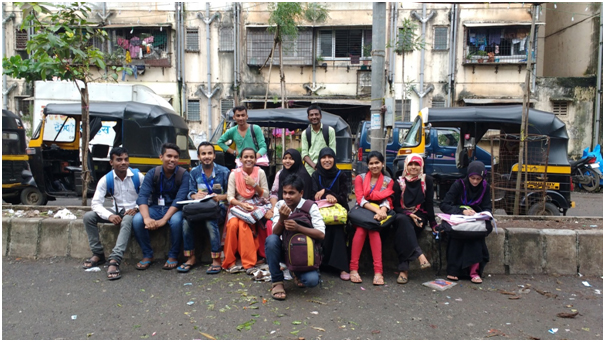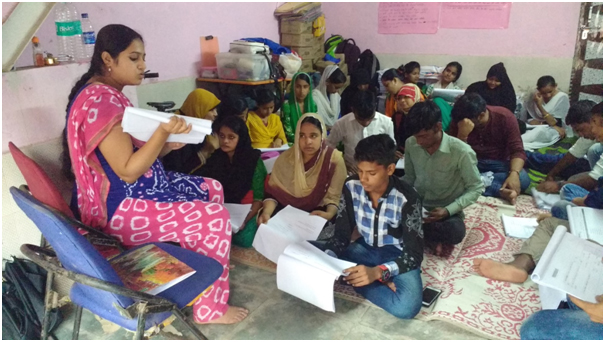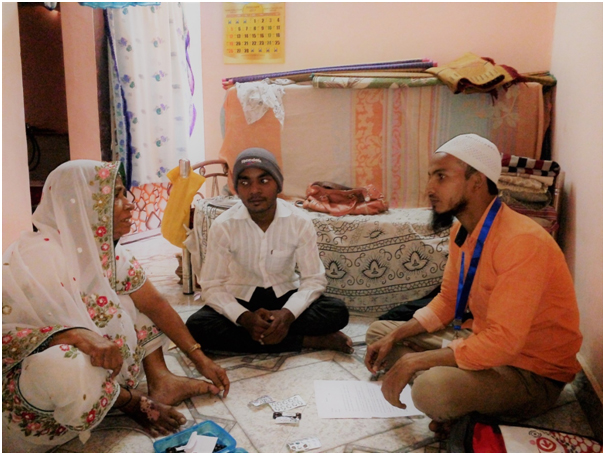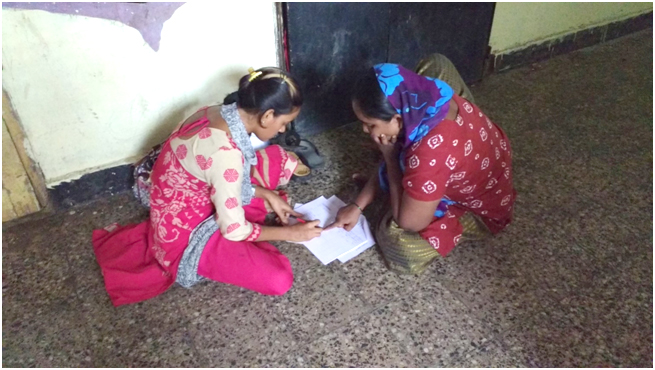October 2016 - March 2019
Partners: Swasth Foundation
This project aimed at evaluating the health care needs of citizens of informal settlements and existing provisions for it in their area. It located residents of informal settlements suffering from Diabetes and High Blood Pressure by conducting surveys in 2000 households and then assessed the health care expenditures, the medicinal expenditure, the progression of their disease and the level of satisfaction/dissatisfaction that the residents had from their current service providers, whether private, public or charitable trusts.
Swasth project
60 Case Studies Families followed every 3 months over a period of 2 years
6000 surveys- 2000 each at Baseline, Midline, End line.

This aim was achieved through various activities. First the core team of HCWC conducted a census of Mandala and Lallubhai Compound in order to do random sampling of all households. Second the director of the program and the Core team created a team of local youth, Sehat Sevaks, who were recruited and then trained in the research including research ethics, surveys techniques, interview techniques, documentation and data collection.
 Tejal, Director of Healthy Cities program conducting a workshop at the field office
Tejal, Director of Healthy Cities program conducting a workshop at the field office
After the training the Sehat Sevaks conducted a baseline needs assessment survey in these communities in 2000 household surveyed at the beginning of the project (Baseline survey). Realizing the high percentage of Diabetes and Hypertension within the surveyed communities, 60 patients suffering from these two disease conditions and their families were taken for long term case studies with longitudinal case studies, spanning over two years to judge the changes in health seeking behaviours in the community and the causalities for the changes that might have occurred in them. These people have been visited by the trained Barefoot Researchers who interview them every two months and documents the progress or worsening of their disease condition their doctor’s visits, hospital admissions, and medicinal expenditures. These findings are being compiled.
 Nizam, Project Coordinator (Right) interviewing a patient
Nizam, Project Coordinator (Right) interviewing a patient
Another mid-line survey was conducted in the same 2000 households a year later, documenting carefully the changes in their disease process, the benchmarks of their health parameters. The baseline study and the mid-line survey analysis revealed some interesting findings related to the health seeking behaviours of the patients. The final results would be projected on the website of both PUKAR and SWASTH and will be presented in an annotated volume.
The low coast Swasth clinic was opened in 2017 in Mandala and some of the patients from the survey have been attending that clinic and are satisfied with that service while others find it too expensive.
 PUKAR’s Sehat Sevak, Meenaz, conducting a survey at Lallubhai Compound
PUKAR’s Sehat Sevak, Meenaz, conducting a survey at Lallubhai Compound

 This aim was achieved through various activities. First the core team of HCWC conducted a census of Mandala and Lallubhai Compound in order to do random sampling of all households. Second the director of the program and the Core team created a team of local youth, Sehat Sevaks, who were recruited and then trained in the research including research ethics, surveys techniques, interview techniques, documentation and data collection.
This aim was achieved through various activities. First the core team of HCWC conducted a census of Mandala and Lallubhai Compound in order to do random sampling of all households. Second the director of the program and the Core team created a team of local youth, Sehat Sevaks, who were recruited and then trained in the research including research ethics, surveys techniques, interview techniques, documentation and data collection.


 Tejal, Director of Healthy Cities program conducting a workshop at the field office
Tejal, Director of Healthy Cities program conducting a workshop at the field office Nizam, Project Coordinator (Right) interviewing a patient
Nizam, Project Coordinator (Right) interviewing a patient PUKAR’s Sehat Sevak, Meenaz, conducting a survey at Lallubhai Compound
PUKAR’s Sehat Sevak, Meenaz, conducting a survey at Lallubhai Compound